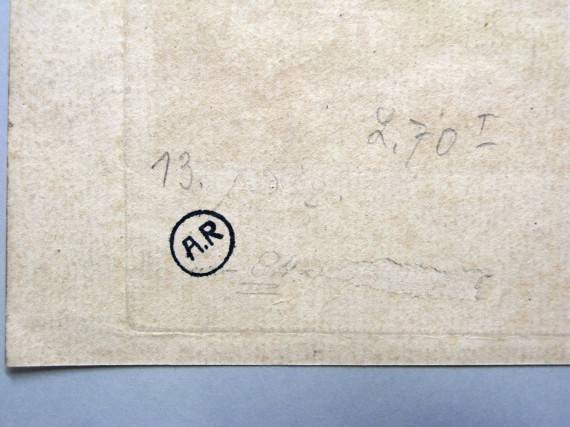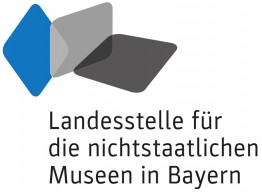Landesstelle für die nichtstaatlichen Museen in Bayern
Provenance research in non-state museums in Bavaria
The ‘Landesstelle für die nichtstaatlichen Museen’ (Regional Office for Non-State Museums in Bavaria) is an institution of the Free State to provide advice to the some 1250 non-state museums in Bavaria. In the field of provenance research it strives to raise awareness and give assistance to museums in the first instance – it is not authorised to issue directives to museums and can only make recommendations – as well as provide financial support for concrete projects. In 2005 it organised a conference on this subject, after which it gave all museums in Bavaria a publication free of charge (Kulturgutverluste, Provenienzforschung, Restitution. Sammlungsgut mit belasteter Herkunft in Museen, Bibliotheken und Archiven, Munich/Berlin 2007). Regular contributions in the specialist magazine ‘museum heute’, as well as other information, underline the importance of this subject. In addition, the Regional Office stages workshops and training courses that enhance the theoretical and practical skills needed at museums. A project drawn up in 2015 and launched in 2016 to put museums in a better position to carry out their own research has now enabled it to provide additional practical assistance in provenance research.
Of the non-state museums in Bavaria, some 220 are primarily local history museums or cultural historical collections that were founded before 1945. It is possible that these museums acquired objects of questionable provenance for their collections between 1933 and 1945. In addition to these, there are 26 art museums whose collections could include encumbered objects from this period. The Regional Office for Non-State Museums in Bavaria exists so that more museums are able to address this subject. The period in question basically effects objects created before 1945 and acquired after 1933 up to the present day. To have as great an impact over as broad an area as possible, we have decided to limit the period of study and the museums to be investigated during this first project, so as to ensure its feasibility and the success of this thoroughly comprehensive research, with the aim of encouraging non-state museums as a whole to carry out provenance research on Nazi confiscated cultural assets.
The project draws on the results of research carried out at the Zentralinstitut für Kunstgeschichte involving the systematic evaluation of documents from the Wienmüller auction house, for which the annotated auction catalogues were especially important. From these results, concrete leads to 17 non-state museums in Bayern emerged which were customers of Weinmüller’s. The most pressing aim is to carry out a preliminary check on acquisitions made by these museums between 1933 and 1945.
 Rückseite einer Druckgraphik, ©Deutsches Museum, München, Archiv, BN_72867
Rückseite einer Druckgraphik, ©Deutsches Museum, München, Archiv, BN_72867The pilot project operates on two levels with those working on the project on site responsible for the respective museums and providing support to make a museum’s business records available. They have to familiarise themselves with the specific history of the institution and its collection and examine acquisition ledgers and inventories for evidence of encumbered objects. This may necessitate visits to local, state or federal archives. The circumstances surrounding the acquisition of specific holdings in a collection made between 1933 and 1945 are to be documented. The Regional Office aims at establishing the need for further provenance research in a museum and at putting a museum in the position to be able to work to this aim on its own. An application for financial support can then be submitted to the Stiftung Deutsches Zentrum Kulturgutverluste (German Lost Art Foundation) should an initial doubt be confirmed. Financial support from the Regional Office is also possible. A pdf on funding guidelines can be downloaded from the website of the Regional Office.
Since February 2016, the following institutions have taken advantage of the Regional Office’s advisory service that involved several on-site visits: the Historisches Museum Regensburg, the Archiv des Deutschen Museums München, the Deutsches Jagd- und Fischereimuseum München, the Fränkisches Museum Feuchtwangen, the Mainfränkisches Museum Würzburg and the Gäubodenmuseum Straubing.
To date, results from two non-state institutions which have participated on this project have led to an individual and a collective restitution of objects. Other museums have been encouraged to upload details of questionable objects on the ‘Lostart.de’ database and to submit applications to finance their own projects to the German Lost Art Foundation. The Regional Office is happy to continue providing expert advice and financial assistance to these museums during this ongoing process.

